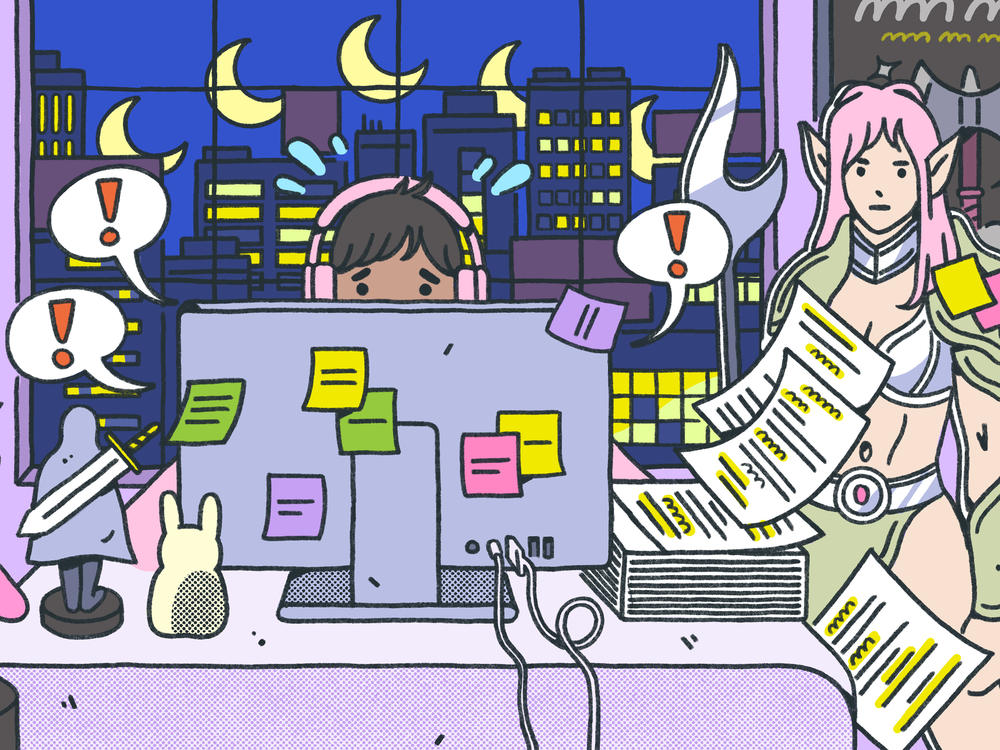Section Branding
Header Content
Work. Crunch. Repeat: Why gaming demands so much of its employees
Primary Content
Employees at video game companies are known for working long hours to meet product launch deadlines. This pressure, known in the industry as crunch, has only gotten more intense as games have grown more complex. Mounting layoffs in the growing industry have only made things worse on the labor front, inspiring some workers to take matters into their own hands.
Today, in the next installment of our series on the business of video games, we speak to several workers in the industry about their experiences with crunch and why they feel unionization is the key to preserving their careers.
Related episodes:
Forever games: the economics of the live service model (Apple / Spotify)
Designing for disability: how video games become more accessible (Apple / Spotify)
The boom and bust of esports (Apple / Spotify)
For sponsor-free episodes of The Indicator from Planet Money, subscribe to Planet Money+ via Apple Podcasts or at plus.npr.org.
Music by Drop Electric. Find us: TikTok, Instagram, Facebook, Newsletter.

